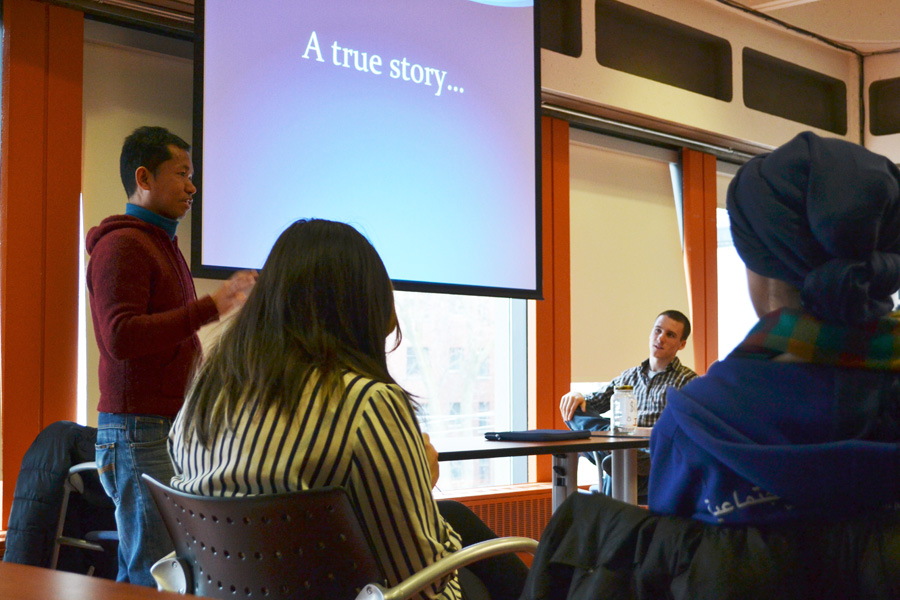Over the course of last week, the Quebec Public Interest Research Group (QPIRG) McGill and the Students’ Society of McGill University (SSMU) presented a series of Social Justice Days designed to encourage dialogue regarding social issues in the Montreal community and around the world.
Now in its seventh year, Social Justice Days has become an annual tradition at McGill. Events this year included a wide range of workshops, film screenings, and lectures. One event, called “the Permanence of Temporary Work,” exposed attendees to Canada’s Temporary Foreign Worker Program (TFWP), the criticisms surrounding it, and the challenges it faces.
The workshop included a viewing of a scene from the film “The End of Immigration,” and a presentation from guest speaker Niel Ladote, who described his experiences as an open permit worker from Indonesia.
The Government of Canada introduced the TFWP as a measure to offset temporary labour shortages for sectors in which Canadian citizens and residents were unavailable for hire. However, temporary workers often face challenges such as cultural barriers, low standards of living, unsafe work conditions, and below-par wages. Due to their status and dependency on temporary work, they often find themselves without leverage when work-place issues arise.
Ladote came to Canada three years ago, and currently has an open work permit.
“I came here as a student, but I don’t feel as though there is any improvement [for foreign workers],” he said.
Ladote said challenges for temporary workers don’t stop at the Canadian border, as many workers find that their position puts a strain on their relationships with loved ones back home.
“I have two siblings back home, and we don’t have [a] really close [relationship anymore],” Ladote said. “I dreamt of the Canadian dream, but it’s not true.”
Students at the workshop were aware that while seemlingly unrelated to McGill, the TFWP plays a role in students’ lives because of temporary workers’ involvement in many aspects of daily life.
“Being a student at McGill, there’s a certain standard of living that we uphold, and I think being aware of how that standard of living is maintained is really important,” Susanna Millar, a U3 social work student who attended the event, said. “Where you buy your daily groceries, where those groceries were harvested, and who made your dinner if you go to a restaurant are important [things] to be aware of, because the standard of living that people enjoy would not necessarily be possible if the cost of production went up.”
Ladote stressed the importance of creating discussion and raising awareness about the challenges temporary workers face in Canada.
“I believe that working together in action is important and crucial—people telling their stories and speaking out, [saying] ‘yes, this is happening in this city and this country,’ ” he said.
Millar echoed Ladote’s call to raise awareness.
“Within the McGill community, we’re not isolated from government policies of immigration,” Millar said. “Just keeping your eyes open to these issues is important because it’s not just [happening] in some remote area, [it’s not just] some people working in a basement; it’s everywhere.”







